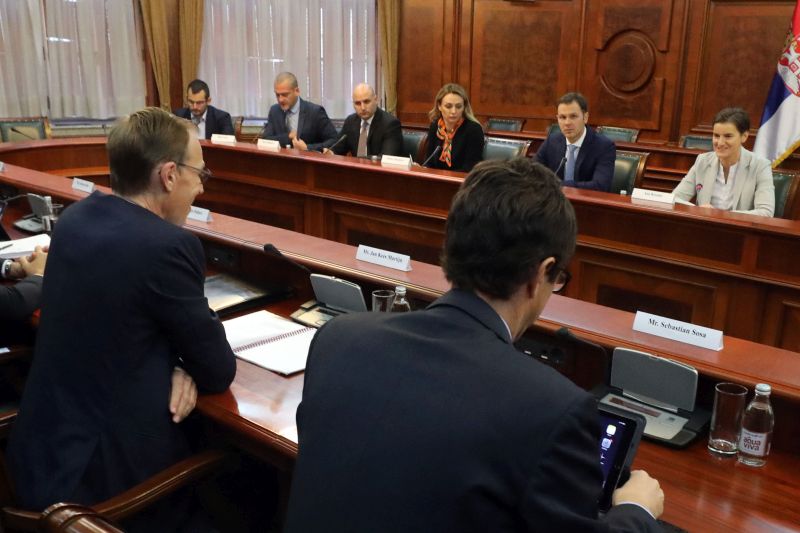Prime Minister Ana Brnabic spoke with a delegation of the International Monetary Fund, led by Head of Mission Jan Kees Martijn, about the implementation of activities under the current Policy Coordination Instrument (PCI) programme.

Martijn praised the reforms being implemented by the Serbian government, and emphasised that activities under the current programme are being implemented within the deadlines set. She praised the ongoing reform of the Tax Administration, the process of finding a strategic partner for Komercijalna banka, and the formation of a new Fiscal Risk Monitoring Sector at the Ministry of Finance. Despite the slowdown in the global economy and the many challenges in the world, the IMF will not reduce Serbia’s growth projection for 2019, Martijn said, adding that the financial institution believes it is possible to reach 3.5 percent growth. Brnabic expressed confidence that the aforementioned growth would be achieved, given that the industry was recovering in the second half of the year and that high growth rates were expected in the third and fourth quarters. She also said she is concerned about the global economic slowdown, warning that our country could be most affected by the slowdown in Germany and Italy, given that these countries are Serbia’s most important foreign trade partners. The Prime Minister stressed that it is important for the domestic economy to become more resilient to external factors. She said that next year, Serbia is expected to open new factories, boost production, with the assessment that all this will have the effect of further strengthening the industry. The Prime Minister also said that it was realistic to reach a growth rate of four percent next year and that it was important for the economy to be based on innovation in the future if the government wants an even greater growth in the years to come. The IT industry is very important in this regard, said Brnabic, citing the fact that exports in this area have doubled in the last three years. The officials agreed that it was a good model for pensions to rise in line with the so-called “Swiss formula” from 1 January 2020. Martijn stressed that this was a good and sustainable model, as pensions were adjusted to match wage growth and inflation. The PCI arrangement was approved to Serbia in July 2018 and will last until January 2021. It is a non-financial arrangement, which has an advisory role and is primarily oriented towards the implementation of structural reforms.